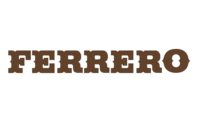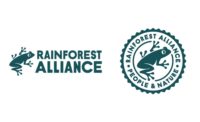Rainforest Alliance publishes 2023 Annual Report
The Alliance aims to accelerate the adoption of regenerative agriculture globally.

courtesy of Rainforest Alliance
Today the Rainforest Alliance published its 2023 Annual Report, announcing a shift from traditional sustainability to a regenerative approach focused on achieving net-positive outcomes for both people and nature. Operating in 62 countries and supporting more than 7.5 million farmers and workers, the global nonprofit aims to reach 100 million by 2030 by propelling the adoption of regenerative agriculture and driving large-scale landscape transformation.
"Thirty-six years ago, we launched a market-based sustainability model that was so practical, it was radical. As we look at our world today, the stark reality is that a no-harm approach is no longer enough” said Santiago Gowland, CEO of the Rainforest Alliance, referring to both the founding of the organization and the current tipping point our planet is facing.
“In this critical decade, we need to not only stop harmful practices but also accelerate those that heal, restore, and regenerate the landscapes and communities on which our lives depend. This means uniting companies, governments, and consumers to steer industries towards transparency, sustainability, and regeneration through shared values and purchasing power. Our destination is regeneration, and we’re all in.”
In the 1990s, the Rainforest Alliance pioneered independent certification to simplify sustainability choices for farmers, companies, and consumers. Now one of the world’s largest farm-to-consumer certification programs, the Rainforest Alliance extends its impact beyond certification through various programs and interventions to advance regenerative farming, climate resilience, and better livelihoods.
Some Annual Report highlights include:
- Cocoa Certification Program Data: The latest Cocoa Certification Data Report highlights key trends of the Rainforest Alliance Certification Program in cocoa for the 2023 reporting year, presenting high-level statistics and insights on the world’s largest initiative for promoting sustainable cocoa farming.
- Regenerative Agriculture Case Studies: In 2008, after decades of conventional coffee farming, Trinh Tan Vinh embraced Rainforest Alliance Certification, embarking on a transformative journey towards regenerative farming. Like many farmers worldwide partnered with the Rainforest Alliance, Trinh significantly reduced pesticide and fertilizer use while enriching his soil, turning his farm in Vietnam into a flourishing ecosystem. Today, his income is 40% higher than that of other farmers in his area.
- EUDR Compliance: The Rainforest Alliance is at the forefront of helping farmers and companies prepare for the European Union Regulation on Deforestation-free Products (EUDR), by supporting geocoordinate collection and using innovative tools like AI-powered risk maps. In 2023 alone, over 2.9 million farm units were assessed for the risk of deforestation, helping ensure that Rainforest Alliance partners meet stringent environmental standards and market demands.
- Global Call to Ban Paraquat in Farming: The global shift to regenerative agriculture requires banning dangerous chemicals like paraquat, a toxic herbicide still used worldwide despite being deadly even in small doses. Banned on Rainforest Alliance certified farms, the non-profit is advocating for its global phase-out. In 2023, 30,000 signatures were collected to push governments, companies, and farmers toward safer, herbicide-free farming practices.
- Community-led Initiatives: In Ghana's Sui River region, the Rainforest Alliance partners with 106 farming communities, government officials, and cocoa industry on a 382,000 hectares landscape action plan. Farmers are adopting regenerative practices like planting shade trees and composting, diversifying income through beekeeping and vegetable farming, and gaining tree ownership. This holistic approach aims to restore forests, boost local economies, and ensure sustainable land management.
Dive into the full annual report here.
Related: Rainforest Alliance supports companies to make a leap towards EUDR compliance
Looking for a reprint of this article?
From high-res PDFs to custom plaques, order your copy today!






